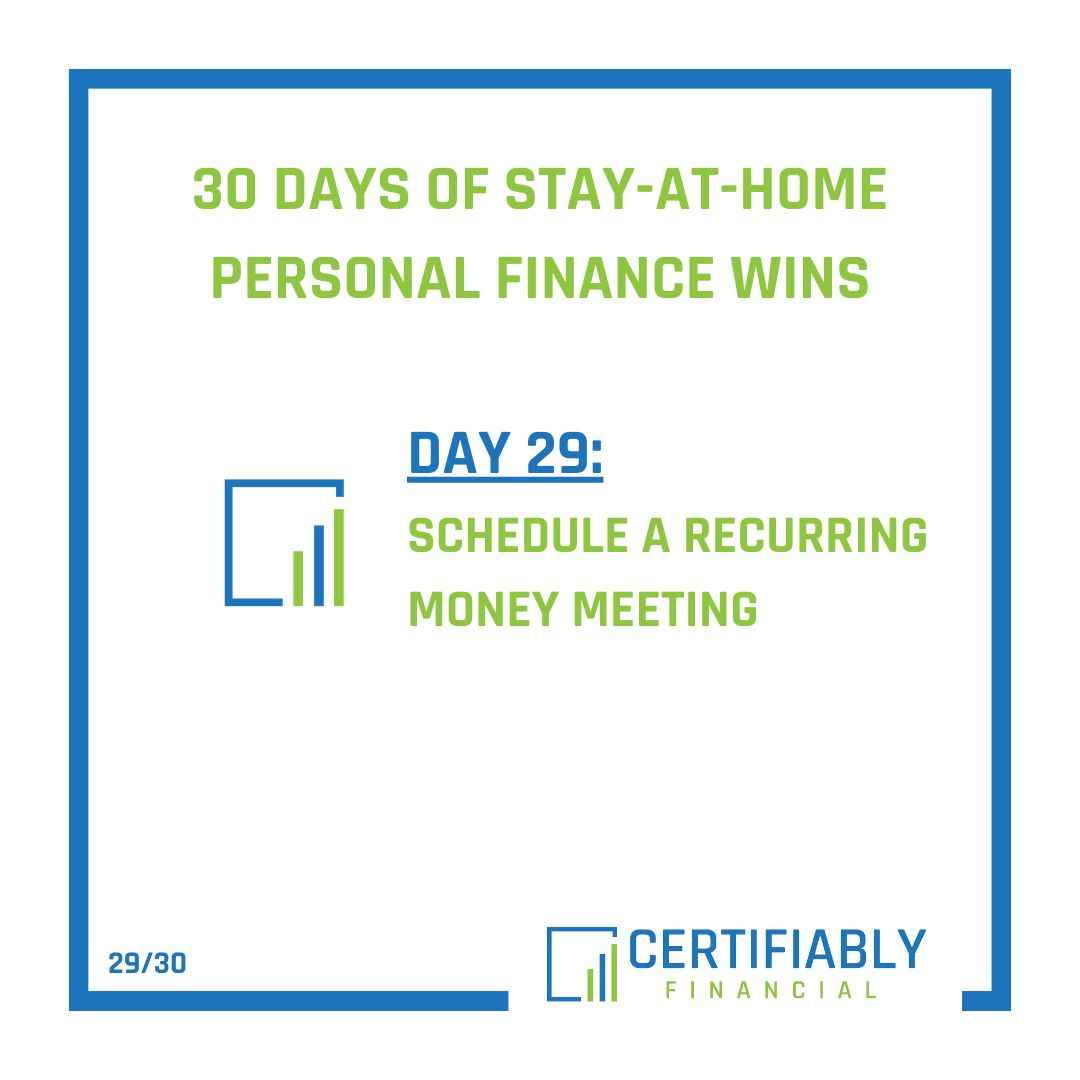What if you were able to come out of this time of social distancing and economic crisis with a stronger and healthier financial life? What if you looked at this as an opportunity to take a little bit of your extra time each day to work on your finances?
Since it takes me about 35 minutes to drive to work in the morning and 45 minutes on the way back home, I have an extra 1 hour and 20 minutes of my day that I don’t have to drive while I’m working from home that I can use to accomplish something. This doesn’t even take into consideration all of the networking and social events that would usually take up some of my time throughout the week.
Obviously, your situation is different than mine (and probably a whole lot different if you have kids at home who would otherwise be in daycare), but I’m guessing that we all have at least a little extra time right now that we can dedicate to our personal finances.
It looks like we’re going to continue to practice our social distancing skills at least through April, and now is a great time to work on creating a better financial situation, so I’m giving you 30 days of stay-at-home personal finance wins throughout April.
Unfortunately, I understand that there are many who have (and who will) lose their jobs during this time of uncertainty and objectively will not come out on the other side of this with a stronger financial situation. Hopefully, many of these personal finance wins can help to lessen the blow and make things easier on them. On the other hand, I think that many of these wins are still relevant to those who are fortunate enough to be in a position to not have to worry about their job and their finances to help them build a healthier financial life.
Day 29: Schedule A Recurring Money Meeting
Having someone who you can talk to about money and who can hold you accountable can be really helpful. No matter whether you’re in a relationship or not, setting up a money meeting or money date with that person is a great way to routinely check in on your financial state and progress. If you don’t have a significant other, then you could ask a friend, parent, or anyone else that you trust to setup a recurring meeting with you to talk about your finances (and maybe theirs as well) so that you can go over what you’ve done well, what needs to be improved upon, and what actions you can take before the next meeting.
Your money meeting or money date could be a weekly, bi-weekly, or even monthly event. Once you get on a roll you’ll find the frequency that works well for you. If you opt to start with weekly meetings, then you may find that after some time it’s more appropriate to have them less frequently. There’s no specific amount of time that you have to dedicate to this. If you can accomplish everything that you want to in 15 minutes, then that’s great. Some people will take longer and some won’t need much time at all.
Make it fun. Make it a date if you’re going to do this with your significant other. So many people struggle talking about money and their finances, which means this could be a dreadful idea to them. If you make an agreement that you’ll speak about your finances for whatever amount of time you decide to and then you’ll have a nice dinner or do something fun afterwards, then you’ll be more likely to follow through with it.
A lot of relationships have a “money person” and a “free spirit”. It will be important for both to commit to the money date and taking your financial progress seriously. If you’re the money person, then you’ll need to make a mental note that you’ll likely be the one who needs to get this exercise off the ground and drive the process at first until you get into the swing of things. However, both people have to be committed and work together to make sure that the money date is worthwhile and helps lead towards financial progress.
Set an agenda for what you’re going to discuss, get it on the calendar, and commit to it.
30 Days Of Stay-At-Home Personal Finance Wins
- Day 1: Understand The CARES Act
- Day 2: File for Unemployment or Short-Time Compensation
- Day 3: Request Forbearance
- Day 4: File Your Tax Return (Maybe)
- Day 5: Commit to Yourself
- Day 6: Practice Financial Distancing
- Day 7: Don’t Panic
- Day 8: Create An Online Shopping Strategy
- Day 9: Find & Store Your Login Information
- Day 10: Review Your Spending
- Day 11: Free Up Cash Flow
- Day 12: Automate Bill Payments
- Day 13: Plan To Increase Your Emergency Fund
- Day 14: Update Your Beneficiaries
- Day 15: Plan for Big Expenses
- Day 16: Create A Debt Pay Down Strategy
- Day 17: Transfer Your Credit Card Balance
- Day 18: Increase Your Retirement Account Contributions
- Day 19: Close Your Old Accounts
- Day 20: Pull, Review, & Freeze Your Credit Report
- Day 21: Find Things To Sell
- Day 22: Review Your Insurance Policies
- Day 23: Review & Update Your W-4
- Day 24: Create a Budget/Spending Tracking System
- Day 25: Create a Net Worth Statement
- Day 26: Identify Your Money Dials
- Day 27: Write Down Your Financial Goals
- Day 28: Create A Financial Goal Tracker

